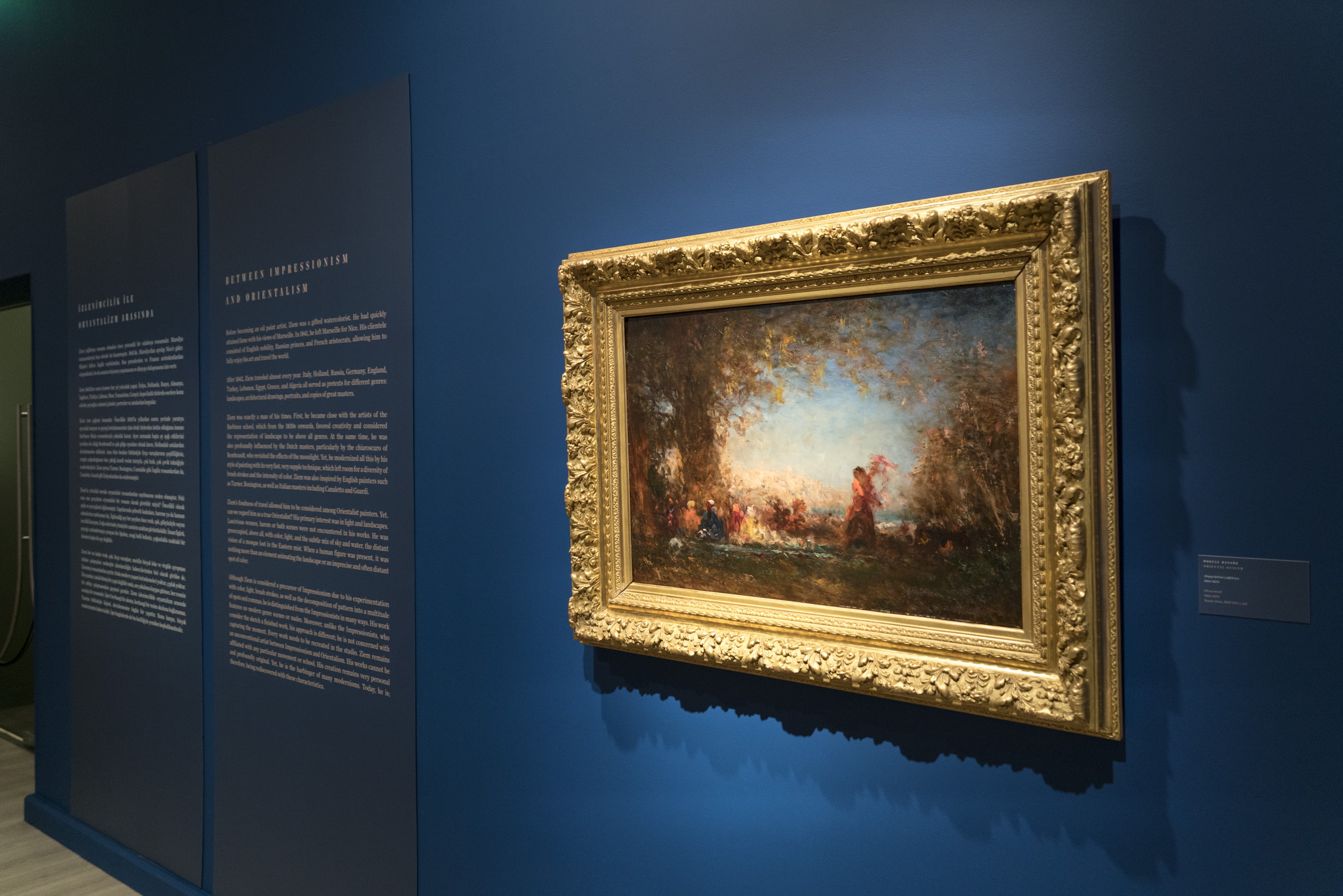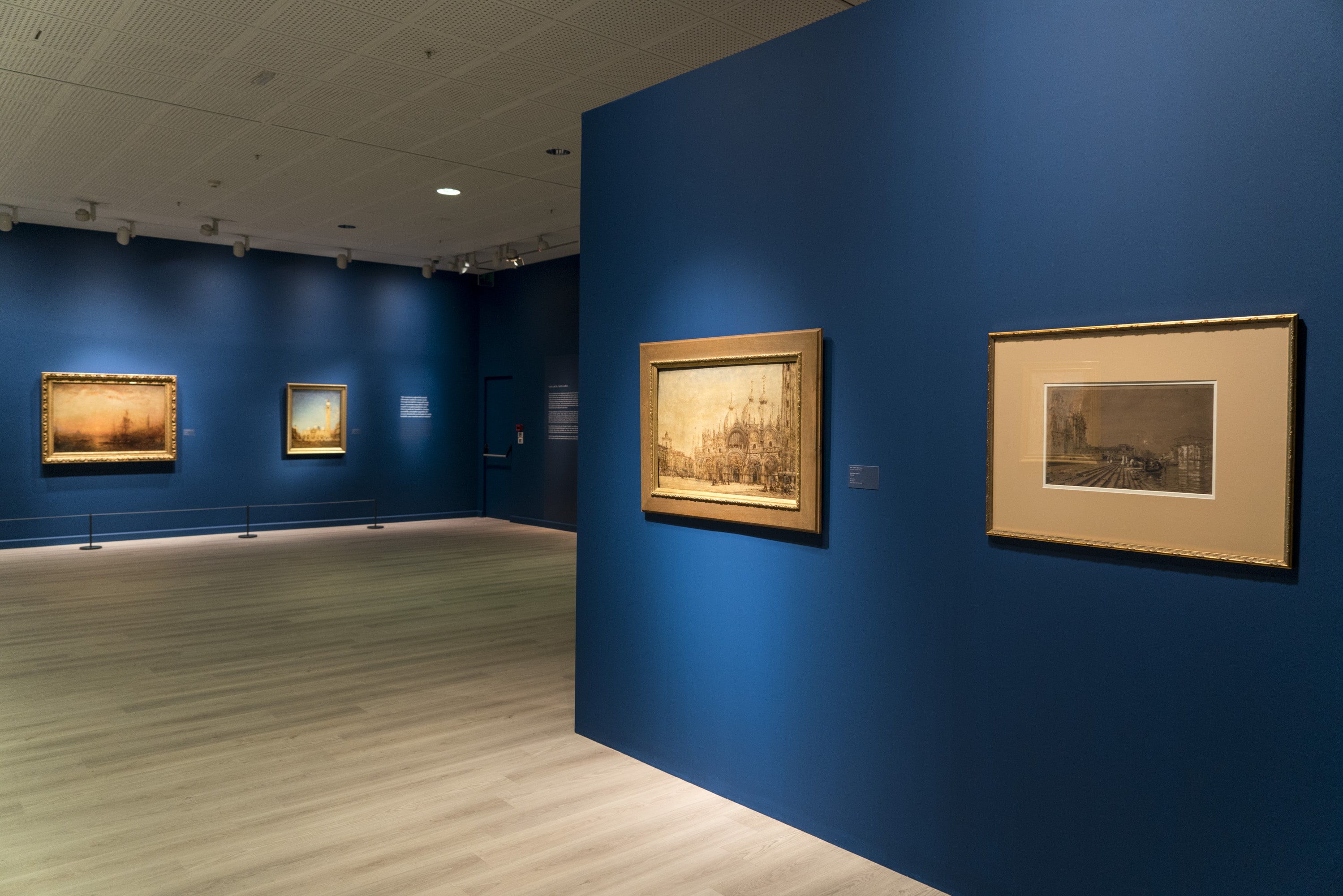27 December 2016

Pera Museum presents an exhibition of French artist Félix Ziem, one of the most original landscape painters of the 19th century. The exhibition Wanderer on the Sea of Light presents Ziem as an artist who left his mark on 19th century painting and who is mostly known for his paintings of Istanbul and Venice, where the city and the sea are intertwined. Through the exhibition, we will be sharing detailed information about the artist and the artworks.
Before becoming an oil paint artist, Ziem was a gifted watercolorist. He had quickly attained fame with his views of Marseille. In 1841, he left Marseille for Nice. His clientele consisted of English nobility, Russian princes, and French aristocrats, allowing him to fully enjoy his art and travel the world.
After 1842, Ziem traveled almost every year. Italy, Holland, Russia, Germany, England, Turkey, Lebanon, Egypt, Greece, and Algeria all served as pretexts for different genres: landscapes, architectural drawings, portraits, and copies of great masters.
Ziem was exactly a man of his times. First, he became close with the artists of the Barbizon school, which from the 1830s onwards, favored creativity and considered the representation of landscape to be above all genres. At the same time, he was also profoundly influenced by the Dutch masters, particularly by the chiaroscuro of Rembrandt, who revisited the effects of the moonlight. Yet, he modernized all this by his style of painting with its very fast, very supple technique, which left room for a diversity of brush strokes and the intensity of color. Ziem was also inspired by English painters such as Turner, Bonington, as well as Italian masters including Canaletto and Guardi.

Ziem’s fondness of travel allowed him to be considered among Orientalist painters. Yet, can we regard him as a true Orientalist? His primary interest was in light and landscapes. Lascivious women, harem or bath scenes were not encountered in his works. He was preoccupied, above all, with color, light, and the subtle mix of sky and water, the distant vision of a mosque lost in the Eastern mist. When a human figure was present, it was nothing more than an element animating the landscape or an imprecise and often distant spot of color.
Although Ziem is considered a precursor of Impressionism due to his experimentation with color, light, brush strokes, as well as the decomposition of pattern into a multitude of spots and commas, he is distinguished from the Impressionists in many ways. His work features no modern genre scenes or nudes. Moreover, unlike the Impressionists, who consider the sketch a finished work, his approach is different; he is not concerned with capturing the moment. Every work needs to be recreated in the studio. Ziem remains an unconventional artist between Impressionism and Orientalism. His works cannot be affiliated with any particular movement or school. His creation remains very personal and profoundly original. Yet, he is the harbinger of many modernisms. Today, he is; therefore, being rediscovered with these characteristics.
Félix Ziem: Wanderer on the Sea of Light exhibition took place at Pera Museum between 10 November 2016 and 29 January 2017.

French artist Félix Ziem is one of the most original landscape painters of the 19thcentury. The exhibition Wanderer on the Sea of Light presents Ziem as an artist who left his mark on 19th century painting and who is mostly known for his paintings of Istanbul and Venice, where the city and the sea are intertwined.

Pera Museum presents an exhibition of French artist Félix Ziem, one of the most original landscape painters of the 19th century. The exhibition Wanderer on the Sea of Light presents Ziem as an artist who left his mark on 19th century painting and who is mostly known for his paintings of Istanbul and Venice, where the city and the sea are intertwined.
Tuesday - Saturday 10:00 - 19:00
Friday 10:00 - 22:00
Sunday 12:00 - 18:00
The museum is closed on Mondays.
On Wednesdays, the students can
visit the museum free of admission.
Full ticket: 200 TL
Discounted: 100 TL
Groups: 150 TL (minimum 10 people)